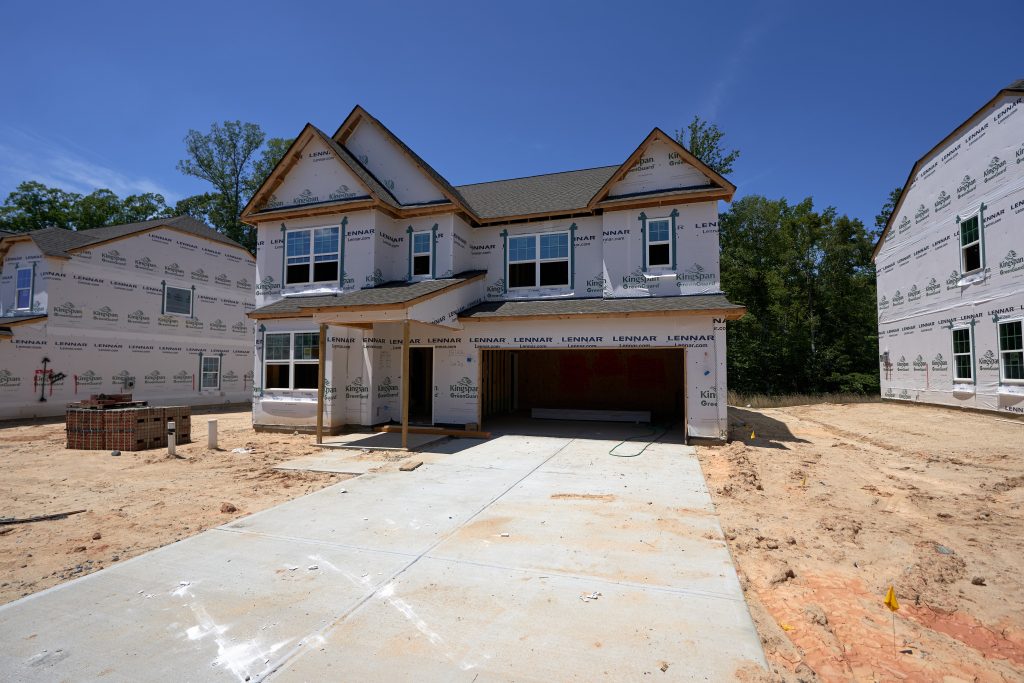 As Charlotte continues to grow out towards Dallas, Oakboro, and other small towns you may have never heard of, new construction communities are popping up left and right within the city and beyond. Home buyers are faced with an option: Do I purchase an existing home, or go new? Let’s break down some pros and cons.
As Charlotte continues to grow out towards Dallas, Oakboro, and other small towns you may have never heard of, new construction communities are popping up left and right within the city and beyond. Home buyers are faced with an option: Do I purchase an existing home, or go new? Let’s break down some pros and cons.
Pros
Obviously, new construction is exactly what it says: new. No one else has sat in that bathtub, the carpet is fresh, and the paint is smooth. There’s something, for me, about that new home smell—I love it as much as others love the smell of a new car. You aren’t going to have to replace any major systems any time soon (roof, HVAC, etc.). and if there are problems, there are most likely warranties in place for at least the first year.
There’s a certain level of customization with a new home, and the ability to customize increases the higher in price you go. With most new homes you’ll get to choose the color of the carpet, paint, cabinets, etc. There will be a range of floor plans to choose from, and depending on the price range, the builder may allow you to modify those plans to fit your needs. Some home builders have design centers where you will literally spend hours picking out knobs, faucets, appliances—everything that goes into a home. If the idea of that makes you want to curl into a ball and hide under the covers, builders usually have at least a few homes available in new neighborhoods that are already built and ready to go.
Buying a house requires a lot of cash to be laid out up front in down payment and closing costs, and if you use a builder’s in-house lender, they will often offer help with closing costs. In addition, if a builder is trying to close out a development, they may offer incentives like price cuts or appliances. If you’re working with a Realtor who knows what he or she is doing, that person can very often negotiate certain things for you—make sure you talk with an independent Realtor before buying directly from the person working in the sales center.
Cons
Just like a car, new construction homes start at a base price and the price can increase drastically depending on what all you want to add to it. If you see a sign that advertises homes starting in the mid-$200s, the model that you walk through isn’t a $250,000 house. That model has probably been upgraded to show many of the features the builder offers, so what you see isn’t necessarily what you get unless you increase your bottom line.
Resale value on a new construction home can be problematic depending on how long you plan on staying in the house and what phase of the development in which you bought the home. If you are one of the first people to buy in a new neighborhood, you may pay more for your house than the last person that buys, because if the builder is having a hard time closing out a development, they may cut prices. I once had a buyer under contract and the builder dropped the price of the floorplan they were buying $15,000 the week before they closed, but the builder refused to honor the price decrease because we had a signed contract for the higher amount.
The biggest con in new construction, in my opinion, is the timeline. When you get under contract, the builder gives you an expected completion date, and you start to make plans based on that. In every new construction contract, though, there’s a clause that states they may have delays and you basically just have to deal with it. Some things cannot be helped. If your house is being built and a pandemic slows down construction, it’s not the builder’s fault. (Who thought that could be used as an example just a few months ago?) There are a thousand things that could slow down construction of a new home, and while a builder wants to complete the home as fast as possible, sometimes it’s beyond their control and it throws everyone’s schedules for a loop.
So, I’ve given you a few pros and a few cons—what it comes down to is what’s most important to you as the buyer. If you’re looking for brand new and customization, and your timeline is flexible, new construction may be the way to go. But, if you want to have more control over the timeline of your move, buying an existing home is probably the better choice. Contact us today and let’s talk about your situation!